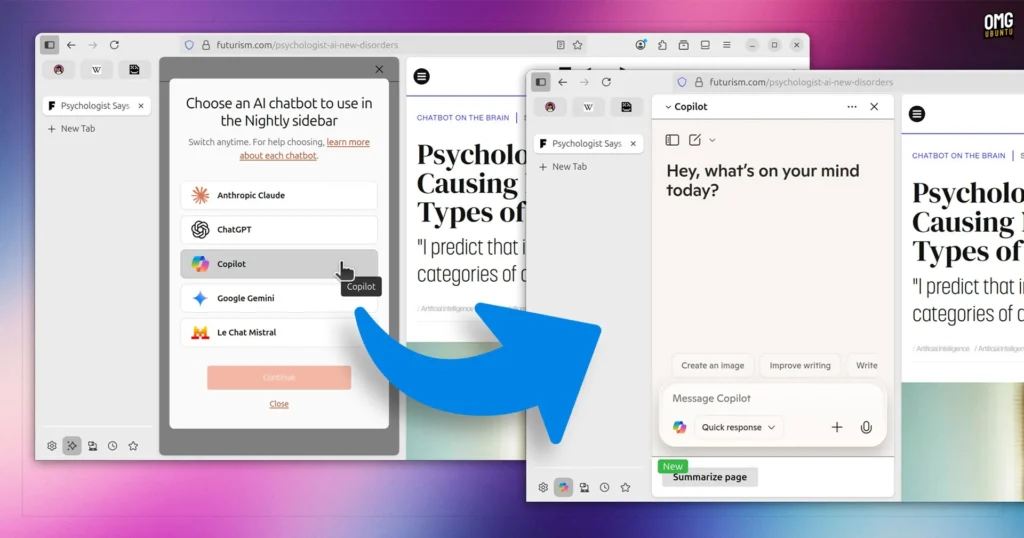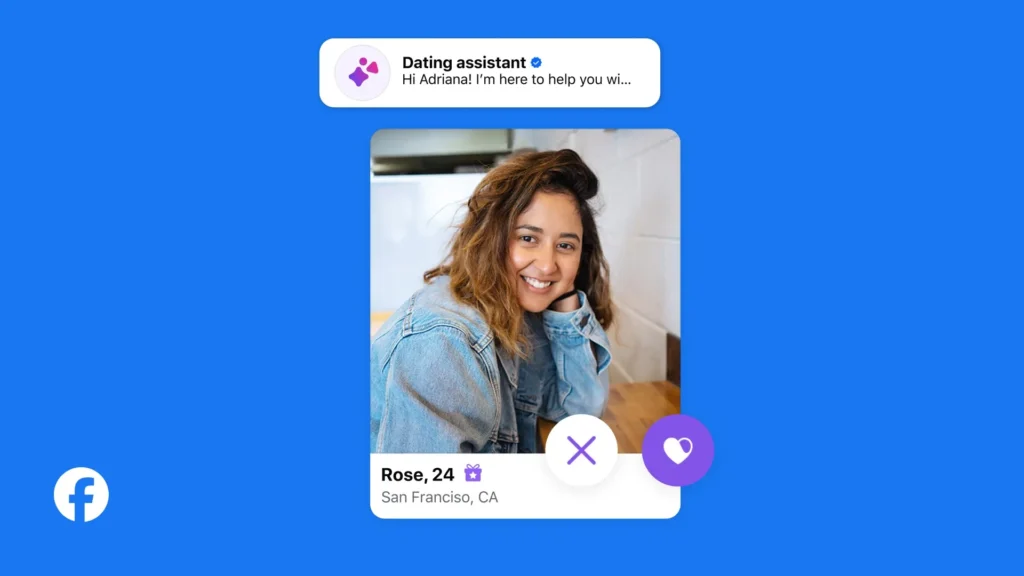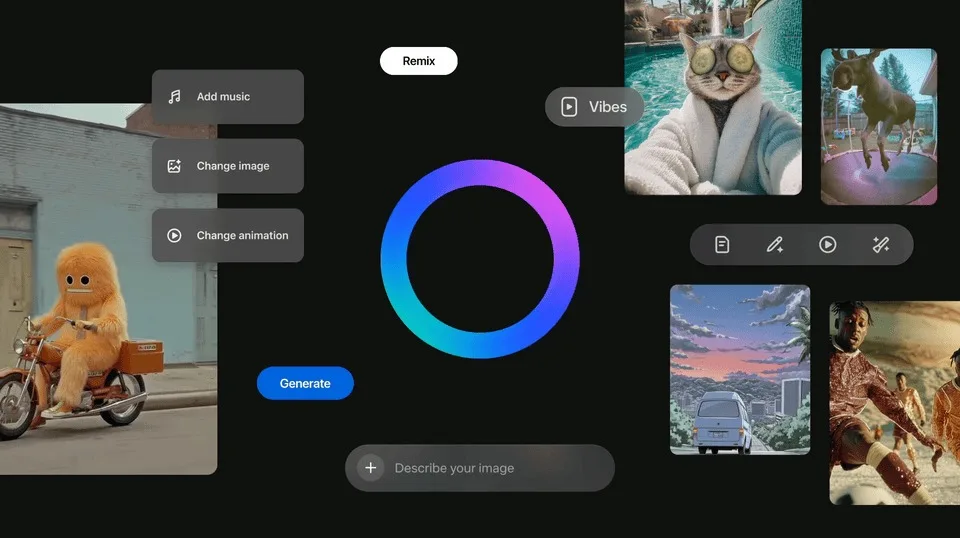Firefox integrates Microsoft Copilot: towards an open browser for third-party AIs
Mozilla is transforming Firefox into a genuine hub for artificial intelligence. In its latest Nightly versions, Firefox has added Microsoft Copilot to its sidebar, joining an already extensive list that includes ChatGPT, Claude, Le Chat (Mistral), and Gemini.
With this integration, Firefox is opting for neutrality: instead of imposing a single in-house assistant, it opens its ecosystem to multiple competing AIs.
This is a smart move, contrasting with the closed approaches of Google (Chrome) and Microsoft (Edge). For users looking to avoid “vendor lock-in,” it’s a way to access several services without switching browsers.
Copilot on Firefox already allows text prompts, file and image sharing, visual generation, and even voice input. However, users must abide by the same limitations and privacy policies as with Microsoft, which may deter a segment of Firefox’s loyal user base known for its privacy sensitivities.
Firefox: Testing Productive Tools
Simultaneously, Mozilla is experimenting with new widgets on the New Tab page: timers, task management, and quick reminders. The aim is clear: to transform Firefox into a comprehensive productivity space, not just a browsing tool.
The main uncertainty lies in user reception. More pragmatic users welcome the addition of modern features, while others criticize it as an “unnecessary overlay” that strays from Firefox’s minimalist and privacy-centric philosophy. To ease concerns, Mozilla emphasizes that activation of Copilot (or other bots) is entirely optional and can be disabled.
Technically, these integrations leverage recent optimizations in Firefox for local AI processing. Ultimately, this could facilitate faster, privacy-friendly assistants that run directly on the device rather than in the cloud.
A Signal for the Industry
By integrating Copilot, Mozilla is taking a calculated risk: modernizing Firefox while staying true to its open-source DNA. If successful, this experience could inspire other browsers to offer cross-integrations rather than relying solely on their ecosystem.
The balance is delicate: it must be demonstrated that these additions do not weigh down the browser or compromise user trust. In a market where every player seeks to differentiate through AI, Firefox might just carve out a new path.




